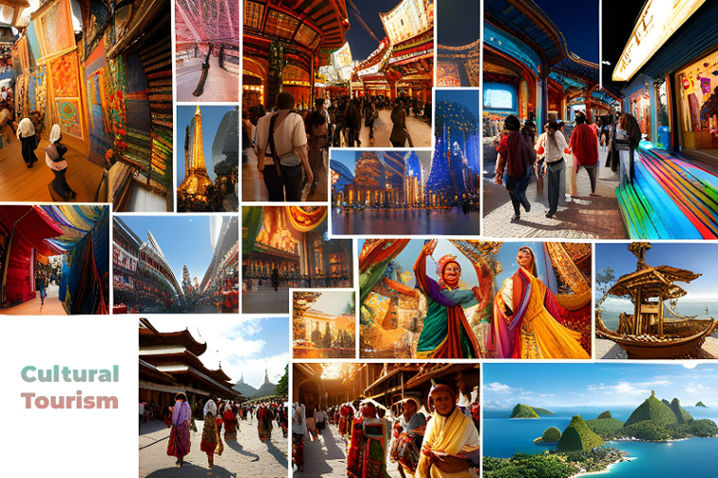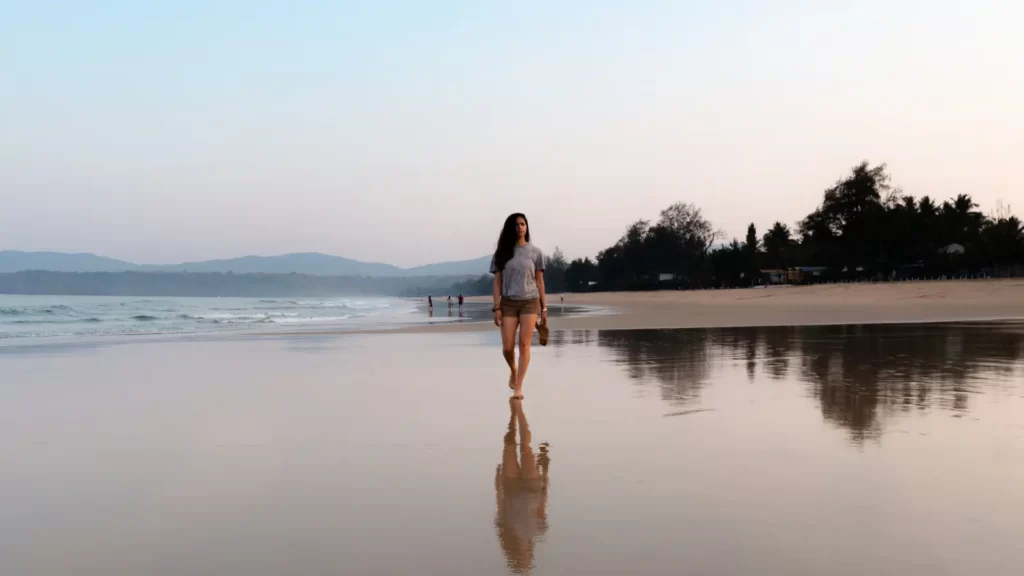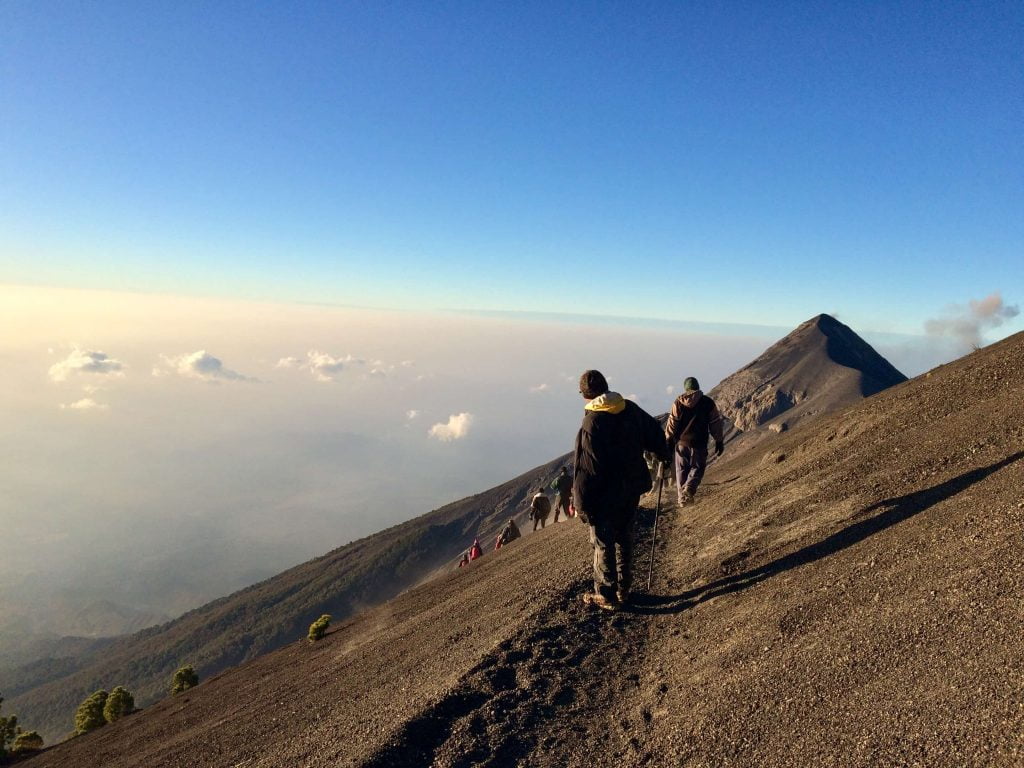“Imagine you’re travelling in a plane, sitting in a bus, waiting in line or simply sitting on your sofa at home, and you find yourself with a few minutes of idle time on your hands – how might you occupy yourself? As most do nowadays, you’re likely to start scrolling through your phone; but what if, instead, you chose to retreat into your own mind and entertain yourself with pleasurable thoughts? How hard could it be in solo travel ?”

Exploration

Thoughts

Challenge
At first glance, it sounds eminently doable. After all, as humans, we possess remarkable minds that can reflect on the past, process the present, and even make forecasts about the future. We can direct our thoughts on real or imagined, as well as pleasant or unpleasant, scenarios and events. Given the endless forms our thoughts can take, why wouldn’t we – when given the opportunity to withdraw from the external world – dive into our own minds and entertain ourselves with our thoughts?

Solo Travel Intentions Matters
About a decade ago, psychologists at the University of California and Harvard University began exploring this question by inviting volunteers to spend time in a room void of all distractions (except for an electric shock device) and to occupy themselves with their thoughts. Their findings, publish as a series of studies in 2016, were striking: 67 percent of the men and 28 percent of the women opt to intentionally shock themselves, rather than spend a short period of time alone with their thoughts. Subsequent work has confirmed that people generally report low-to-moderate enjoyment following an experience in which they are given full freedom to sit and think.
These findings seem surprising for a species that’s define by its unique thinking abilities (surely raising doubts about our species name, Homo sapiens, which translates from Latin as ‘wise human’).

Thinking can be rendered more enjoyable simply by boosting solo travel intentions to use their thoughts towards Self.
Our team of travel psychologists conducted an experiment by asking their volunteers to set aside a ‘thinking break’ to focus specifically on pleasurable thoughts with the sole purpose of enjoying the experience. However, they found that, even when instructed to think specifically pleasurable thoughts, solo travelers still did not particularly enjoy the experience relative to other activities.
Across a series of studies involving solo travelers from 11 different countries, those assigned to thinking for pleasure rated the experience as significantly less enjoyable than others assigned to various other solitary activities, including reading or watching a video. The findings were consistent across cultures, which demonstrates the universality of solo travelers’ preference for activities that provide an external source of entertainment, rather than spending time thinking about pleasurable topics of their own making.

Solo Travelers Intentions – Thinking for Pleasure
To better understand why thinking for pleasure is so challenging, it is helpful to break the activity into two basic parts: the thought processes and the thought contents –
- The thought process refers to the intention (ie, having sufficient motivation) and ability (ie, having sufficient concentration) to think for pleasure,
- While the thought contents refers to the subject matter of one’s thoughts, and whether they are sufficiently meaningful and/or pleasurable.
This brings us to the other key part of thinking for pleasure – the content of one’s thoughts. What type of thoughts garner the greatest enjoyment? And do we know intuitively what those are? Our recent project, led by Mitesh Jain, suggests that “most of us don’t know what to focus on to generate the most enjoyment out of intentionally thinking for pleasure. My colleagues and I found that providing solo travelers with examples of enjoyable thinking topics (ie, accomplishments, social occasions, vacations) increased their enjoyment, compared with having solo travelers generate their own topics, suggesting that they’d struggled to come up with these topics for themselves.”

When solo travelers are asked to think enjoyable thoughts, they don’t necessarily think of meaningful ones.
My collaborators and I also found an intriguing pattern – the strongest predictor of enjoyment in a thinking period came from the extent to which solo travelers said they found it meaningful. This led us to wonder whether directing solo travelers to focus on meaningful thoughts would provide them with greater enjoyment, rather than focusing on simply pleasurable ones. This suggests that solo travelers do not spontaneously choose meaningful topics that are also enjoyable.
Overall, as Travel Psychologists demonstrated that, when solo travelers are asked to think enjoyable thoughts, they don’t necessarily think of meaningful ones, thus detracting from their pleasure, and when they are asked to think about meaningful thoughts, they don’t necessarily think of enjoyable ones, again undermining their pleasure. All of this suggests that most of us do not have an intuitive sense of how and what to focus on in order to derive the most pleasure from our thinking experience.
Fortunately, these results point to a couple of scientifically backed ways for us to make thinking for pleasure actually enjoyable for Solo travelers. So, now that you are coming to the end of this article and you have a few minutes to spare, why not spend some time with your own thoughts?

Here’s what I can recommend for optimizing your enjoyment
- Your goal should be to have a good time; that is, make it your intent to focus on events and aspects of those events that bring you enjoyment.
- When conjuring topics, choose ones that are both meaningful and pleasurable (eg, social events and accomplishments).
- Prior to the thinking period, write down these topics, so that you can glance at them if you feel like you’re having a hard time staying focused. (use Tangible Travel Tool)
- Set out a specific time for your thinking breaks; that is, choose to engage in the activity when you feel motivated to think for pleasure, but stop if and when you feel like it’s becoming too cognitively demanding.
- As with all things, practice – you will get better over time and, the more you do it, the more you will anticipate thinking for pleasure to be enjoyable.
The thoughts we create shape the lives we live.
In case you missed it, it is to our benefit to occasionally spend some time thinking for pleasure. While initially challenging, with a little practice, we have at our disposal the cognitive abilities to derive pleasure from simply entertaining our own thoughts. In a world in which the external environment demands so much of our attention, I believe we could all benefit from occasionally retreating inwards to derive both meaning and pleasure from within in our solo adventures.
Love this topic? Hate it? Let’s chat on social media!








This is such an interesting article! And it just hit me… Cause’ as you pinpointed at the beginning: our minds are really powerful, they can go from past, present and even future, cause’ thinking is free! But… that’s why we feel kind of intimidated or just prefer to keep ourselves busy with our phones instead of listening to it. And that could be a root for anxiety/depression.
This is an awesome blog and an amazing practice for all of us! Especially in the current environment we are living.
In these fast moving world, we need to slow down for ourselves with an approach to not be connected with elements which are secondary.
Thank you for all the appreciation.
I really relate with this article! As someone who loves to travel solo, I couldn’t agree more that it’s a skill that can be practiced and improved upon. The tips you provided for improving confidence and resilience while traveling alone are practical and actionable. I especially appreciated the emphasis on mindfulness and self-awareness – taking the time to reflect on our emotions and reactions can be incredibly helpful in developing the inner strength and resourcefulness necessary for successful solo travel. Thank you for sharing your insights on this solo travel!
Thank you for taking the time to read our article and leaving such a positive comment! If you have any suggestions for future topics, please feel free to let us know. cheers!